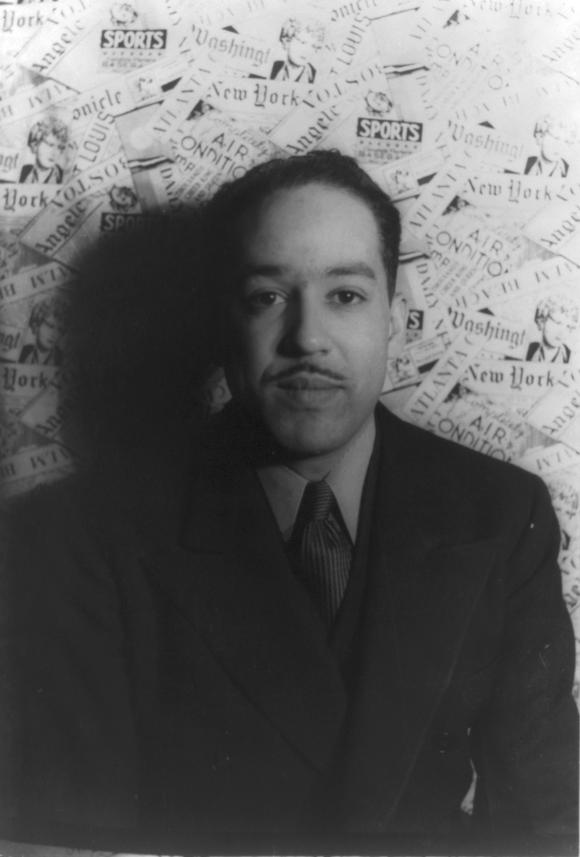On Feb. 4, 1949, a brief notice appeared on Page 3 of The Asheville Citizen. “Langston Hughes, poet, will give two performances at the Allen High School Tuesday,” the announcement read. Tickets, the statement added, were available by calling the school, a local private institution for African American girls which operated from 1887-1974.
A second, brief notice appeared in The Asheville Citizen on the day of Hughes’ visit. In it, the paper again mentioned the times of the scheduled appearances and reported that the poet had offered an informal talk at Black Mountain College the previous night.
There was no additional coverage of Hughes’ time in Asheville.
This absence did not go unnoticed. On Feb. 13, 1949, in the Sunday edition of the Asheville Citizen-Times, Fletcher resident Anne Hunter Jenkins lampooned the local papers for their failure to provide any insight about the series’ content: “I have noticed with increasing concern the seemingly willful way in which certain occasions, of importance and interest to a great number of people in Asheville and the vicinity are neglected by these papers.”
To fill the void, Hunter Jenkins offered a recap of the night, describing it as a “very fine, completely sane and (if I may coin a word) ‘trans-racial’ address[.]” In addition to his speech, Hughes also read a selection of his poems. The combination, wrote Hunter Jenkins, “was so simple and unbiased, and yet so powerful, that if it could have been heard or even read about, by enough people, it would advance 100 per cent the cause of intranational tolerance and understanding.”
The Fletcher resident concluded her letter by raising a series of questions to the paper’s editor. “What is the purpose of a newspaper? Is it not to report the news, to give its readers a full account of all important events, as soon as possible after they have taken place?” she asked. “Even if it is merely a money-making project pure and simple, is it not in the paper’s own best interest to give its readers full and satisfactory coverage of all local events of interest to the majority?”
Asheville resident Halsey B. Leavitt objected to Hunter Jenkins’ letter in the following week’s paper. “Your failure to report the meeting, in my opinion was commendable,” Leavitt wrote, praising the paper’s omitted coverage. “[T]his man Langston is a member of many Communist front organizations. Is this type of man to be invited to address any pupils of any American school let alone one that is supported by a church?”
The debate continued in the paper’s Feb. 27 edition, when Julia Titus, principal of the Allen High School, wrote: “Anyone who did not hear Mr. Hughes’s two splendid programs is not in a position to criticize him. Had he heard either program he would have heard nothing that can be constructed to be anything but good, sound, American patriotism.”
Titus’ response appeared to put the matter to rest. But then, over a month later, on Sunday, April 3, 1949, the Asheville Citizen-Times featured one additional letter on the subject, penned by Langston Hughes himself. “For the past month I have been traveling and lecturing in the Middle West and so the letter of Mr. Halsey B. Leavitt in The Citizen-Times has just come to my attention,” the poet wrote.
Denying Leavitt’s claims, Hughes continued:
“I am not now and I have never been a member of the Communist Party. My appearance at the Allen High School was purely in the form of a literary and Negro History Week program. I am sure that the superintendent and principal of Allen High School had in mind, when they invited me to appear at the school, an evening of purely cultural and historical import. Certainly, anyone who was present at the program could hardly have gone away with any other impression. I wish very much that Mr. Halsey B. Leavitt had been present. I thoroughly believe in the right of Mr. Leavitt to present his views to the public. I think that he should accord me the same privilege.”
Editor’s note: Peculiarities of spelling and punctuation are preserved from the original documents.




History
What a great and compelling story, thank you for printing this.